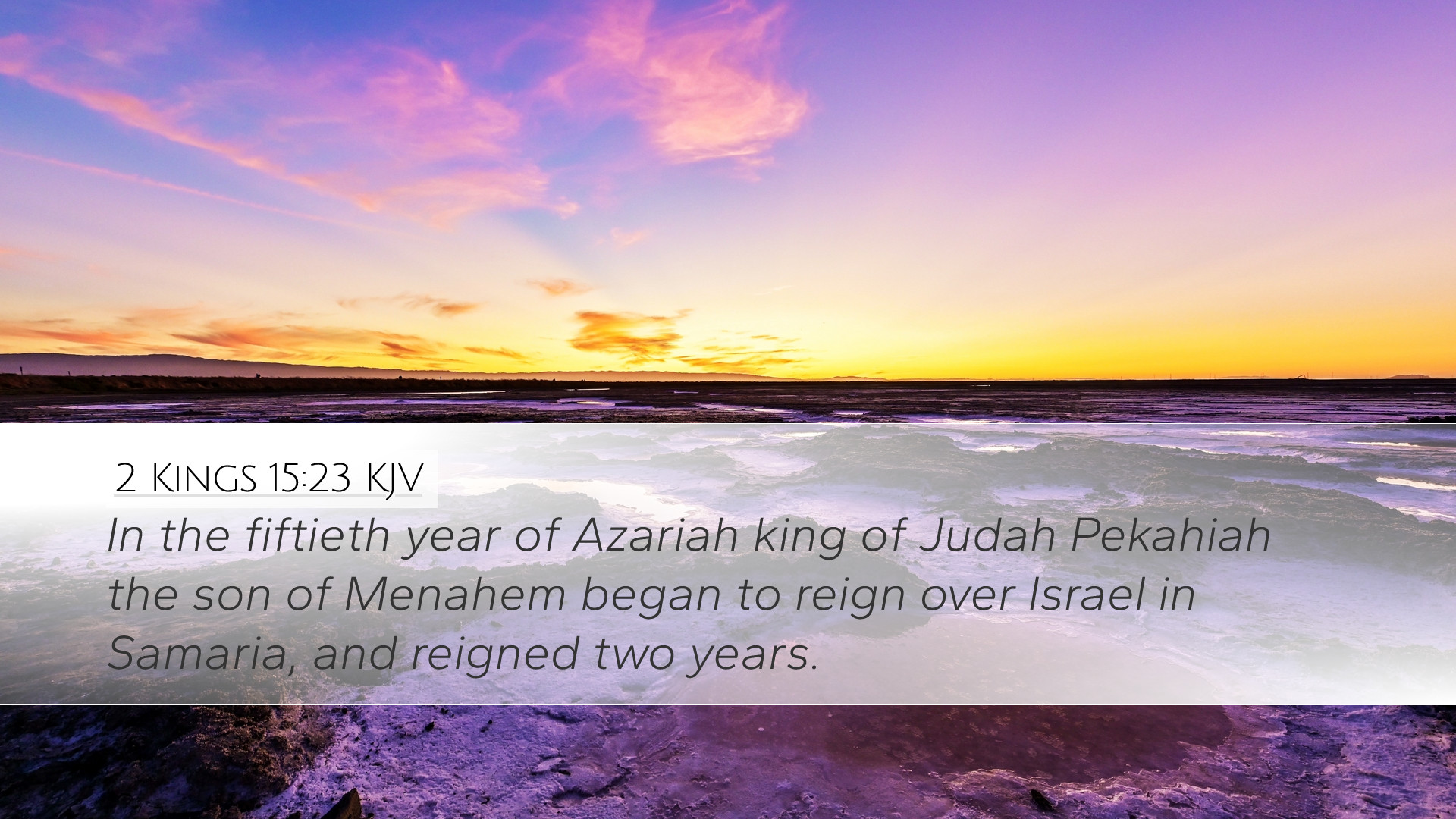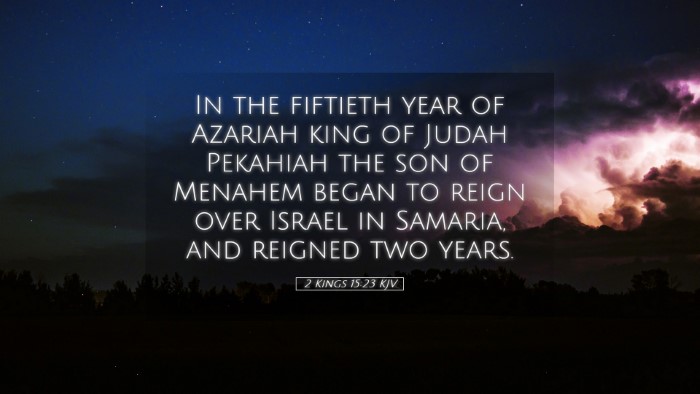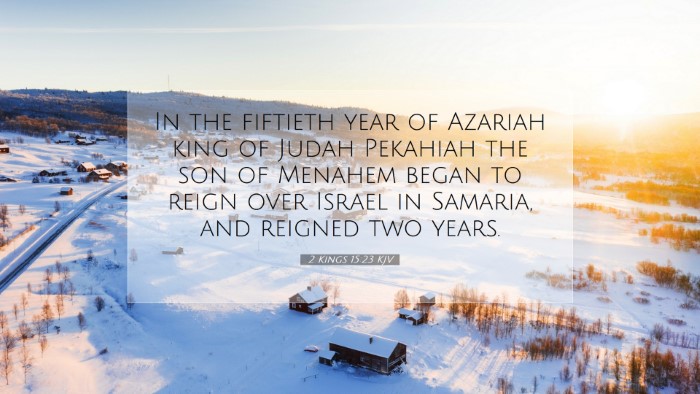Commentary on 2 Kings 15:23
Verse: "In the fiftieth year of Azariah king of Judah, Pekah the son of Remaliah began to reign over Israel in Samaria, and reigned twenty years." (2 Kings 15:23)
Historical Context
This verse marks a significant moment in the history of the divided kingdoms of Israel and Judah. The reign of Pekah is set against the backdrop of political turmoil and moral decay that characterized Israel during this period. It is essential to grasp not only the timeline but also the implications of leadership and governance as depicted in the scripture.
Political Climate
Pekah, the son of Remaliah, ascended to the throne after conspiring against and killing King Pekahiah, which points to the instability and violence of Israel's leadership. This power struggle demonstrates the fragile nature of kingship in Israel, with rulers often rising by force rather than by divine appointment.
Commentary Insights
Matthew Henry
According to Matthew Henry, this verse succinctly introduces Pekah's reign and emphasizes the continuity of sin and rebellion in Israel's leadership. He notes that Pekah's reign was marked by the rejection of God's laws and the worship of idols. Henry posits that the political actions of Pekah align with a broader narrative of divine judgment upon Israel due to their persistent infidelity toward God.
Albert Barnes
Albert Barnes adds that Pekah's twenty-year reign is significant in terms of its duration but also in the context of God's dealings with Israel. Barnes emphasizes that Israel's rulers often had a role in leading the people astray, and Pekah was no exception. He ruled during a time of great external pressure, including Assyrian invasion, which he suggests served as both punishment and a testing ground for the faith of the Israelites.
Adam Clarke
Adam Clarke provides a more detailed analysis of the socio-political implications of Pekah's ascent to power. He highlights the fact that Pekah's reign coincided with the reign of Uzziah (Azariah) in Judah. Clarke underscores the divided loyalties and the political interplay between Judah and Israel during this era. He suggests that the turbulence of Pekah's reign was a divine response to the people's continual transgressions and the failures of their leaders.
Theological Implications
This verse and the surrounding context carry several theological implications for today's readers, particularly for pastors and theologians seeking to draw lessons from Israel's history.
Corruption in Leadership
The reign of Pekah illustrates the dangers of corrupt leadership. As leaders, whether in the church or in secular environments, the importance of righteousness and adherence to God's commandments cannot be overstated. As Henry suggests, a leader's moral failings lead the populace into deeper sin, showcasing the interconnectedness of leadership and communal faithfulness.
Divine Sovereignty and Judgment
Furthermore, the timeline provided in this verse connects the rulers of Israel and Judah to a divine narrative of judgment. The consistent theme of God’s sovereignty allows for the rise and fall of kings, illustrating how God uses even imperfect leaders to fulfill His purposes. This understanding underscores the importance of recognizing God's hand in history and His authority over nations.
Applications for Modern Readers
The verse encourages modern readers to reflect on the nature of leadership within their own communities and the impact of moral and ethical decisions in leadership roles. Theological scholars are prompted to consider how the examples set forth in scripture can guide current practices and beliefs.
Call to Action for Leaders
- Integrity: Leaders are called to maintain integrity and accountability while pursuing righteousness.
- Vigilance: Awareness of the moral climate of society is essential to uphold justice and truth.
- Faithfulness to God: A strong commitment to God can lead to the spiritual renewal of communities.
Encouragement for Believers
For the average believer, the story of Pekah is a reminder of the importance of true worship and fidelity to God's commands in a world that often strays from His truths. Personal and communal faith practices should be examined carefully, ensuring they align with biblical teachings.
Conclusion
In conclusion, 2 Kings 15:23 serves as a poignant reminder of the cyclical nature of sin and judgment, the complexities of leadership, and the necessity for faithfulness in both leaders and followers of God. The insights drawn from public domain commentaries provide a rich tapestry of understanding that can equip pastors, students, and scholars alike to engage deeply with the text and apply its lessons in contemporary settings.


